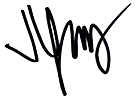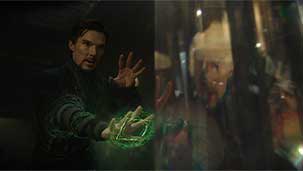There’s an interesting line in the first act of Marvel’s latest blockbuster, delivered by a character named The Ancient One (whose ancientness and oneness with the universe are pretty convincingly embodied by an even paler-than-usual Tilda Swinton), in which she compares the casting of spells to the writing of computer code. To paraphrase: the universe has rules, and those rules are determined by a programming language; learn to speak that language, and you can bend – and even change – those rules.
Small ideas like this are at the core of Marvel’s success on the big screen. The spell the studio casts is one of backwards rationalization; they’re able to retrofit characters and motivations and circumstances in order to turn even the goofiest, anachronistic superheroes into completely relevant modern characters. Doctor Strange is a perfect example. The Sorcerer Supreme was the product of a very specific time in American history: the counterculture of the 1960s was steeped in hallucinatory drugs and Eastern philosophy. To capitalize, Steve Ditko and Stan Lee created a character who embodied (albeit indirectly) some of the far-out principles that fuelled that movement: a former doctor who has dropped out, tuned in, turned on, learned black magic in Kathmandu, and spent his subsequent free time hanging out in the psychedelic multiverse. The book, as expected, became a favourite of college students and Hare Krishna converts alike.
And yet, in this new film, released a half-century later, Dr. Strange still feels like a manifestation of contemporary zeitgeist: he’s a reformed materialist, a converted skeptic, an obsessive autodidact, a mystic technologist—a sort of occult Mark Zuckerberg. He must protect the world from supernatural terrorist threats, and struggles with how much of his own moral capital he must spend in order to do so. Like the best Marvel characters, his heroism doesn’t come from a place of self-righteousness – he’s not born into spandex, like some Amazonian Princess or crash-landed alien immigrant – but from internal struggle. Peter Parker is crippled by guilt, Tony Stark is an alcoholic, and Stephen Strange...well, he’s kind of a self-centered dick.
So, yes, the filmmakers have done their due diligence in justifying the existence of this movie in the year 2016. But what about the movie itself? And what does all this have to do with you, Gina?
Well, you’re somewhat of a magician, too. And the visions you’ve helped conjure in the many scenes of kaleidoscopic head-tripping are genuinely spectacular (which is significant if only for the fact that we live in an age of perpetual, exhausting spectacle). Cities fold in upon themselves, the pandemonium of a collapsing building occurs in reverse, bodies cartwheel through weird fractal space-tunnels. Throughout all this, you apply your craft meticulously; single frames stretched and smudged and painted over to ensure that the tumbling, floating, kung-fu-fighting figures are interacting realistically with their environments. And, with the exception of some cartoonish contortions during the fight sequences, it pays off.
So, in that sense, Doctor Strange, as a superhero blockbuster, excels where it needs to. It’s epic, it’s loud, it’s funny, it’s efficient. But, Gina, the magic you exercise in bringing to life the physics of the world is missing entirely from the screenplay. It seems like such a generic complaint, I know, and sort of unfair, because who comes to see a superhero film for subtext and nuance? Even the best superhero flicks – The Dark Knight, The Avengers – are speaking a language that is necessarily preposterous. But there is room in this genre, I think, for films like this one to eschew tradition and find new ways to build character, incite conflict, and resolve that conflict; there doesn’t always need to be an impenetrable garbage storm swirling over a world capital.
Marvel has done this to themselves: they’ve set the bar so high that I’m finding it harder and hard to forgive this kind of middling entertainment. Doctor Strange aspires, in some scenes, to Shakespearian gravitas, and in others to Whedon-esque burlesque. And throughout it all, there’s the usual superabundance of exposition to correctly place this film and its characters in the increasingly complicated constellation of the Marvel Cinematic Universe, which is also known as the MCU, and the fact that this is both a proper noun and an acronym should give you a sense of how, in these films, the bigger picture can take priority over little details like character development and pace and motivation and resolution in these individual films—they’re just building blocks, after all. One gets the sense, walking out of Doctor Strange, that you’ve just watched a two hour-long deleted scene from the next Avengers movie.
I like that idea of magic being akin to writing computer code. And the way that idea is expressed onscreen, with specific movements and visual cues (eg. swirled fingers open up teleportation portals) puts reasonable parameters around the notion that these characters can do virtually anything. And I like the work that you did, Gina, to bring all that anything to life. It made me believe, for those two hours, in magic. I just wished that such care was applied to making me believe the thoughts and feelings and actions of the characters who were practicing that magic.
Sincerely,

Jared
Try on the Eye of Agamotto yourself - strange things could happen!
Check out this DC&C Special Tie-in today.







